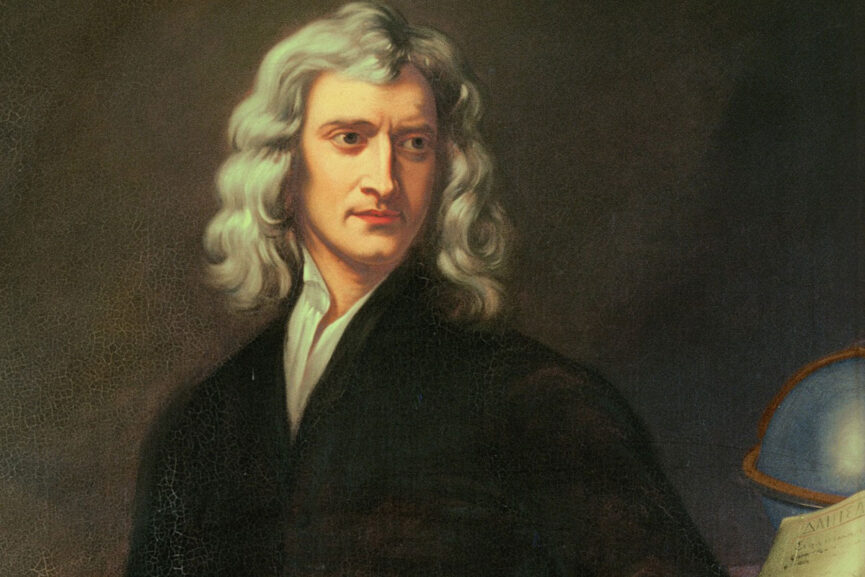It is no exaggeration to say that without Sir Isaac Newton, there would be no space exploration. The man was able to stretch his mind beyond contemporary conventions and see the things everyone else missed.
During a pandemic, Newton was forced to go home early from the university. In his spare time, he discovered (among other things) the theory of universal gravitation. Masses exert a pulling force on the masses around them (the larger the mass, the larger the pull). Astronomy took a colossal step forward on that day. Within 300 years, we put our own satellites into orbit and even walked on the moon.
What most people do not know is that Newton was a man of deep faith. He saw his efforts to understand the natural world as a means of coming to appreciate the Creator. He wrote to a friend:
When I wrote my treatise about our system, I had an eye upon such principles as might work with considering men for the belief of a Deity; and nothing can rejoice me more than to find it useful for that purpose.
Sir Isaac Newton, Letter to Richard Bentley
For Newton, the efforts of his immense intellect were directed at helping others grow in their faith in God. He pointed people to grander scientific understanding, but also to “search the scriptures yourself and that by frequent reading and constant meditation upon what you read, and earnest prayer to God, to enlighten your understanding if you desire to find the truth.” (“Treatise on Revelation”, 1675)
Reason is faith’s loyal servant. We were created with a curiosity that seeks greater and greater understanding of the physical and spiritual world (Ecclesiastes 3:11). Our intellect serves as a guide for exploring and marveling at the works of God. The more we learn, the more we appreciate the intricate design that combines into mesmerizing beauty. On this point, David exclaims:
On the glorious splendor of your majesty, and on your wondrous works, I will meditate. They shall speak of the might of your awesome deeds, and I will declare your greatness.
Psalm 145:5-6, ESV
In recent times, great thinkers have imagined that reason should rule over faith. The servant assumes the throne while the rightful ruler goes into exile. While we might expect such a turn away from God in a world that has forgotten Him.
May it not be so in the hearts of those who walk by faith and not by sight (II Corinthians 5:7). When we begin to “reason” our way out of faith, may we remember that the former was always meant to serve the latter. As Paul says:
We destroy arguments and every lofty opinion raised against the knowledge of God, and take every thought captive to obey Christ.
II Corinthians 10:5, ESV
This begins in our own thinking. Take Newton as an example and let reason be faith’s loyal servant.

